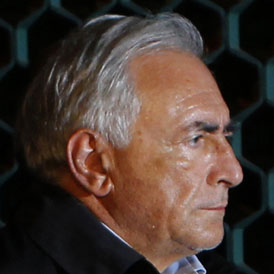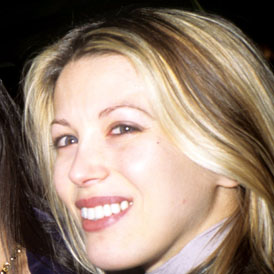Q and A: the Strauss-Kahn scandal
The shock arrest of Dominique Strauss-Kahn has created “a political earthquake” in France and plunged the IMF into crisis. What are the implications for France and the world economy?

How important is Dominique Strauss-Kahn?
The 62-year-old took over the IMF in November 2007 and was credited with urging world leaders to pump billions of dollars into the world economy in the wake of the global financial crisis.
Strauss-Kahn played a pivotal role in brokering bailout deals for Iceland, Hungary, Greece, Ireland and Portugal, and is also credited with convincing Germany to help bail out Greece’s debt-laden economy last year.
He was due to meet the German Chancellor, Angela Merkel, in Berlin on Sunday about increasing aid to Greece, and then join EU finance ministers in Brussels on Monday and Tuesday.
The IMF is responsible for one-third of Greece’s existing loan package, and his expected presence at these meetings underlined the gravity of the Greek crisis.
What does his arrest mean for France?
Most analysts in France think the scandal will put an end to Strauss-Kahn’s plans to run for the presidency, even if he is ultimately cleared of the charges.
That throws the presidential race wide open, removing the man who was expected to get the Socialist Party’s nomination, and who had already emerged as the clear favourite to become the countr’s next president in early opinion polls.
The Socialists’ Deputy leader Harlem Desir insisted his party “is neither decapitated, nor weakened”.
Was he set up?
One of Strauss-Kahn’s allies has claimed he may have been the victim of a sting intended to discredit him ahead of the presidential elections.
Christine Boutin, head of the small Christian Democratic Party, told French television: “That he could be taken in like that seems astounding, so he must have been trapped.”
Before Strauss-Kahn’s arrest there had been reports that his political enemies were gathering information to try to smear him if he ran for president.
The news magazine Le Point reported that he confronted Mr Sarkozy in the toilets at the G20 summit in Pittsburgh in September 2009, saying: “I’ve had more than enough of this continued gossip about my private life and about supposed dossiers and photos that could come out against me. I know that this is coming from the Élysée (the French presidential palace). Tell your guys to stop or I’ll go to the courts.”

What were the previous allegations?
In 2008 Strauss-Kahn was criticized by the IMF after he admitted having an affair with a subordinate, economist Piroska Nagy.
An investigation found that he had not abused his position and his wife stood by him, saying: “These things happen in the life of any couple.”
When Strauss-Kahn was appointed to the position of IMF chief, Liberation journalist Jean Quatremer wrote that his “only real problem” was his “rapport” with women.
He went on: “Too insistent, he often comes close to harassment. A weakness known by the media, but which nobody mentions. The IMF…is an international institution with Anglo-Saxon morals. A misplaced gesture, a too specific allusion, and it will be a media scramble.”
A young female journalist, Tristane Banon, claimed in a television interview that Strauss-Kahn had assaulted her in an empty apartment in Paris in 2002 after she had contacted him for a book she was writing.
Her lawyer, David Koubbi, says she is now considering filing a complaint about the alleged incident following Strauss-Kahn’s arrest.
What next for the IMF?
The IMF has appointed Strauss-kahn’s second-in-command John Lipsky acting managing director. Officials say Mr Lipsky often runs the fund while its MD is away and it remains “fully functioning and operational.”
But just last week, Mr Lipsky said he planned to stand down in August, a move that could leave the IMF leaderless as it faces the massive task of tackling Europe’s debt crisis and steering the world back to economic recovery.
Mr Lipsky was due to meet with the 24-member IMF board on Sunday to brief them on Strauss-Kahn’s arrest, but the meeting was postponed while developments unfold in New York.
One board member said: “Europe is on fire. It’s a good idea to have made Lipsky acting MD but how long will this go on for?”
The IMF board, made up of representatives from member countries like the United States, France, Germany, China and Japan, has the authority to appoint and to dismiss the managing director.
Even if Strauss-Kahn is cleared of criminal charges, the board could decide to replace him.
Possible candidates include Former Turkish finance minister Kemal Dervis, French Finance Minister Christine Lagarde and ex-Prime Minister Gordon Brown, whose name has been linked to the job despite comments from David Cameron, who has urged the IMF to look beyond Europe for its next leader.
A European Commission spokesman said the arrest will not have an impact on any of the fund’s support programmes for EU countries.
-
Latest news
-
Boy with profound learning disabilities reaches out of court settlement after abuse in residential school7m

-
India election: Modi rivals hit by string of raids and arrests7m

-
Can UK’s abandoned mines be used to build a greener future?5m

-
Sycamore Gap: Man pleads not guilty to felling iconic tree2m

-
‘Child poverty has not fallen since Tories came in’, says Gordon Brown5m

-




